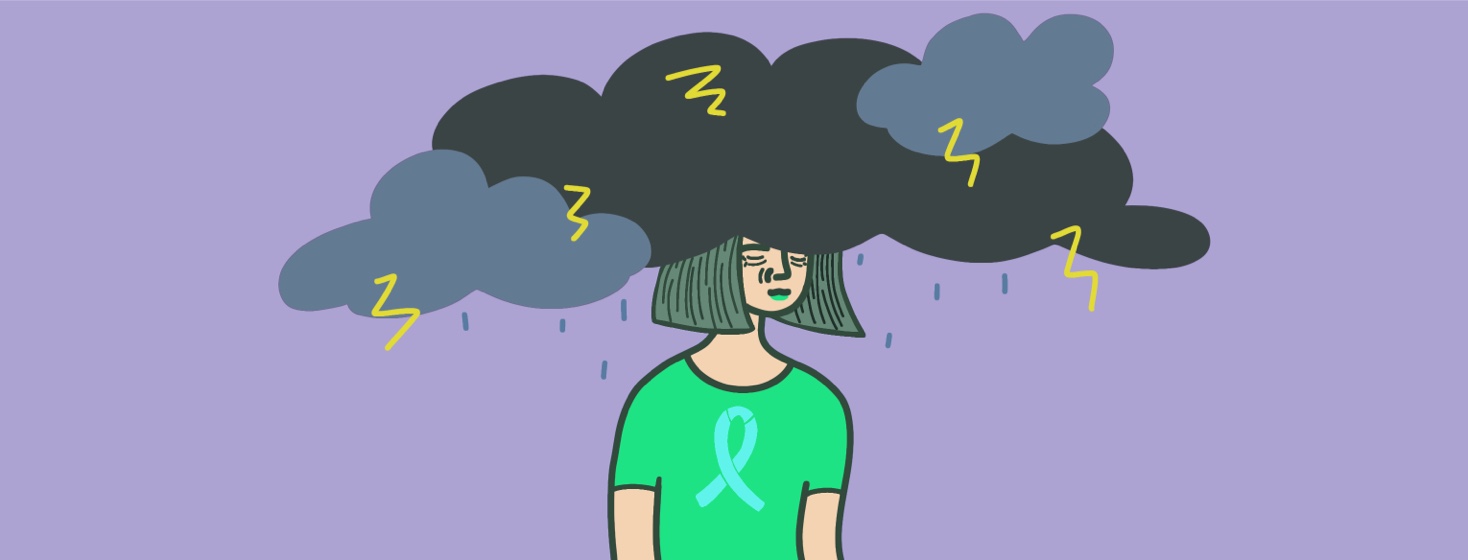Medical Post Traumatic Stress Disorder and Bladder Cancer
Cancer is traumatic. Bladder cancer may be even more traumatic. The medical and cancer communities do not discuss it nearly enough, but medical PTSD is a thing! The International Society for Traumatic Stress Studies (ISTSS) defines medical trauma as a set of psychological and physiological responses to pain, injury, serious illness, medical procedures, and frightening treatment experiences.
It is fairly safe to say that most diagnosed with bladder cancer have had at least one traumatic experience concerning their diagnosis and treatment. I know I have. Actually, I have had several.
Compounding experiences
I am the type of person who may have a breakdown or two, usually in private or in the company of a few very close, trusted individuals. I blubber it out, sometimes a bit incoherently, then I take a deep breath and power right through it. Despite the trauma that I have experienced in life and my bladder cancer experience, I did not think I had PTSD. That is, I did not think I had PTSD until the COVID-19 pandemic hit.
The pandemic
At the start of the pandemic, I worked in an office at a pediatric hospital under the pretenses that I would be reporting to work in the office no matter what. Suddenly, that changed, and the entire hospital scrambled to get laptops and other supplies to enable everyone to work remotely. Like many across the globe, something that had been told could not be done under any circumstances.
I was thrust into working from home with subpar equipment and fewer resources to adequately do my job. Along with the stress of having my workload quadrupled and unrealistic expectations for the same, if not quicker, turnaround times on everything - paired with the complete and total isolation sent my body and emotions reeling.
Struggles triggered by isolation
The event rollout seemed to contribute to my physical and emotional struggles. Triggered by loneliness, stress, and lack of physical contact with others. Eventually, after reading another article about Medical PTSD, I realized that this was what I was experiencing. I consider myself a reasonably educated and aware person, yet, I was completely unaware that I experienced medical PTSD for 4 years.
Bladder cancer medical PTSD
Medical PTSD is a subcategory that is not really discussed publicly despite PTSD getting a lot more attention in the last decade or so. I guess there are large numbers of people who do not realize they have it. Therefore, it gets swept off and brushed under the rug.
Society, at least US society, encourages people to turn on Taylor Swift, shake it off, and move on. Still, the reality of actually accomplishing this is slim to none. This is not helped because so many believe that once bladder cancer treatment has ended, the individual is finished with dealing with all bladder cancer-related issues. How many of us are laughing at that assumption?
Coping with medical PTSD
I consider myself fortunate enough to have a psychologist who works with the oncology practice I have been seeing. I am lucky I can work these issues out with her. Not every bladder cancer patient is as fortunate. I also take medication for depression, and that helps me a lot.
The pandemic triggered the resurfacing of some issues that I had not experienced since I was in active treatment. Because I brushed it off as treatment issues, I did not discuss them with my therapist either. The pandemic brought to the forefront my depression and PTSD issues. This led me to make some changes in my life that allow me to deal with things in a healthier way.
For example, I am now supporting myself in a less stressful, high-impact environment that allows me to be creative and be flexible with my time and schedule. This allows me the space to be receptive to what my body needs. I am eating better, drinking more water, and generally, I am a lot happier.
Addressing medical PTSD
If you think you may be experiencing medical PTSD, please talk to your doctor and seek assistance. The ISTSS has a fact sheet with questions to ask yourself if you think you may be experiencing medical post-traumatic stress disorder. Other resources on medical PTSD can be found here:
Have you experienced bladder cancer medical PTSD? Tell us about your experience in the comments below, or share your story with the community.

Join the conversation